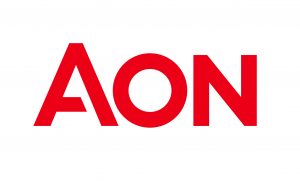What does a Trainee Actuary at Willis Towers Watson do? Here, Alice Boreman tells us all about her role and her weekly experience here…
Having studied Maths and Economics at university, I had a keen interest in applying my mathematical skills in a business environment. I work in pensions consulting so as a team we advise companies and trustees on their pension schemes. Depending upon whether we are advising the company or the trustee, the work can be quite different.
The company are interested in reducing the money they pay into the scheme and reducing the risks they face. The trustees have a legal obligation to have a valuation every three years and we also provide them with updates on their funding position. The trustees are also responsible for the day to day administration of the scheme and we regularly provide them with individual calculations for members.
I work in the Leeds office which is open plan and associates of all different levels of seniority sit with each other. This is great for development as I often pick up on things in conversations senior colleagues have and it also gives you great access to your senior colleagues.
I want to talk you through one of my weeks, to give you a snapshot of what a a Trainee Actuary at Willis Towers Watson may be involved with. It may also give some insights into some of the daily goings on at a large actuarial firm.
Monday
One of our corporate clients has been looking into ways to save money. Unlike a lot of the schemes we advise, this scheme is still open to future accrual. I have been asked to look into how changing the rate of accrual or the NRA could help reduce the contributions the company pay into the scheme. I have a brief run through with the lead client consultant about what he wants to take to the client, before making a start on calculating the figures.
Tuesday
As a junior member of the team I also get involved in scheme secretarial work. This involves organising meetings, taking minutes, keeping the trustees informed on the latest issues, recording any actions, conflicts of interest or decisions made outside of meetings. Although this is not actuarial work it is a great way of getting client contact in the early years of your career and a great way to develop your consulting skills. Plus you always learn new things from listening to advisers at meetings.
Today I am attending a call with both the company and the trustee as part of the valuation discussion. The two parties have different opinions on the security of the companies ability and willingness to pay into the scheme and hence the level of risk that should be built into the assumptions used. The meeting is quite heated in parts and hearing the two different viewpoints is very interesting. After the meeting I write up the minutes and once these have been reviewed they are circulated to the trustees as they are our client. These minutes are an important way of documenting the journey to finalise a valuation process.
Wednesday
Unusual cases received by the administration team are often sent to the actuarial team to either complete or to review depending on the complexity of the case. Today I have to review a transfer value which has been sent to us because it is over £250,000. This involves doing an independent calculation to see if their figure is in line with our expectations.
We also support the administration team by providing them with methods and software to help with their calculations. Due to the government’s recent change to the statutory pension increase indexed by RPI to CPI, the inflation assumption we use to value benefits for a transfer value will now be different and I need to alter the way our software is set up to reflect this. This particular client has different sections which each have different rules, so the task takes a little longer as I need to check the legal advice to check which increase can be changed.
Thursday
One way firms are de-risking at the moment is by offering enhanced transfer values (ETV) to try and reduce their deferred liabilities. One of my clients is currently preparing to implement an ETV exercise and I undertook some high level checks on the data to ensure it is adequate to be used for individual member offers. I perform some high level checks to ensure everything looks reasonable, for example that the pension accrued looks reasonable given the service. Once I have looked over the data I need to work out how to format it in order to be able to run bulk calculations. I also calculate some factors so I can perform rough checks on the outputs from our software.
Friday
Another de-risking exercise is a pension increase exchange where members are given the option to give up indexed increases on part of their pension in return for a higher pension. I have been setting up a spreadsheet to calculate what higher pension the member could receive if they took the option.
At the end of each week my team has a workflow meeting to see what work we have on the following week and to redistribute work if needed to make sure everyone’s workload is manageable.





